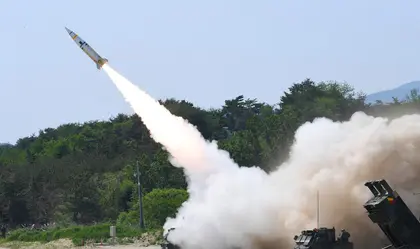For the first time, sociologists in Ukraine have recorded a decline in the percentage of people willing to endure the war indefinitely, although 63% still respond affirmatively, according to a survey by the Kyiv International Institute of Sociology (KMIS).
The survey, conducted in September-October 2024, found that 15% of respondents are prepared to endure the war for several more months, while 4% are willing to last another six months.
JOIN US ON TELEGRAM
Follow our coverage of the war on the @Kyivpost_official.
Compared to February, the share of people willing to endure the war for a year increased from 3% to 6%, bringing the total percentage of Ukrainians willing to withstand a relatively long period to 69%.
From the start of Russia’s full-scale invasion to February 2024, public sentiment remained consistent, with around 71-73% expressing readiness to endure the war indefinitely (an additional 2-3% indicated they could endure for one year.)
During the same period, 18-21% reported a shorter personal tolerance, ranging from several months to a year and a half.
Between February and October 2024, sociologists noted, for the first time, a decline in the share of those willing to endure indefinitely.
KMIS Deputy Director Anton Hrushetsky commented: “Despite the challenges and uncertainty, and even amid rising fatigue, most Ukrainians remain determined to fight as long as it takes.”
Russia’s war resources: what do Ukrainians believe?
As of fall 2024, 47% of Ukrainians believe Russia has enough resources to sustain a prolonged war against Ukraine, while 46% think Russia is running out of reserves, according to KMIS.

Inside the South Korean Weapons Factory That Could Supply Kyiv
One of the Kremlin’s core propaganda messages claims that war with Russia is futile due to its “virtually unlimited resources,” including finances, personnel, and weaponry, the KMIS’ report read.
The belief in Russia’s long-term capability has surged: between February and October 2023, the proportion of Ukrainians who think Russia has ample resources for a prolonged war rose from 22% to 49%.
Conversely, confidence that Russia is exhausting its resources and that the war could end in Ukraine’s favor dropped from 67% to 43% over the same period. This sentiment has remained steady from October 2023 to October 2024.
Hrushetsky said that the notion of Russia’s limitless resources impacts Ukrainian morale, particularly in frontline regions. “We’re witnessing the erosion of certain critical sentiments,” he said. “The enemy must not be underestimated, but neither should we surrender to the myth of an invincible Russia.”
KMIS conducted its survey from September 20 to October 3, 2024, sampling 2,004 respondents. The survey did not include residents in areas temporarily outside Ukrainian government control.
Meanwhile, a September 2024 survey by the Razumkov Center shows that 83% of respondents still believe in Ukraine's victory over Russia.
Among those, 39% think victory will come within 1-2 years, 19.5% expect it by the end of this year, 15% foresee victory in 3-5 years, 5% predict it will take over five years, and 2% doubt it will happen in their lifetime.
In February-March 2023, public optimism was at its peak, with 50% believing Ukraine would achieve victory by the end of 2023.
You can also highlight the text and press Ctrl + Enter






